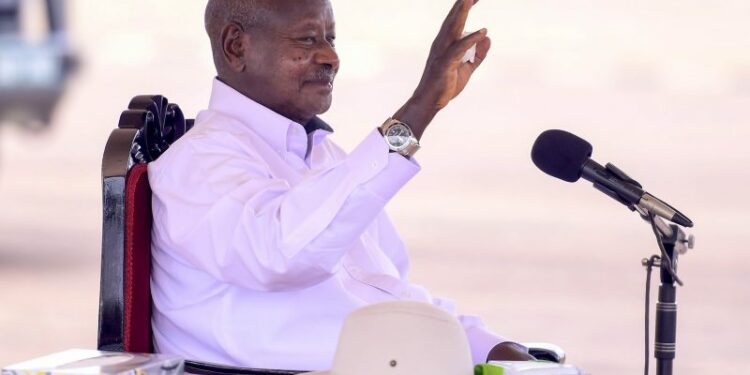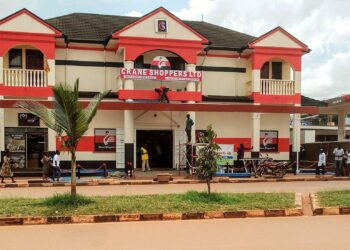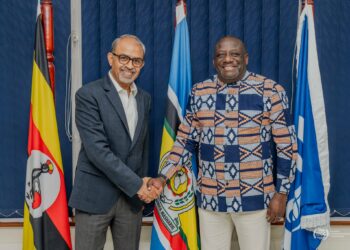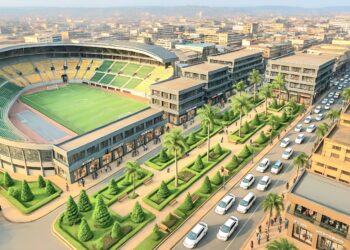As Uganda prepares for the 2026 general elections, one truth is becoming increasingly clear: President Yoweri Museveni’s legacy and political future are deeply intertwined with the success of his flagship anti-poverty prograems—Parish Development Model (PDM), Emyooga, and the newly launched GROW initiative. These programs are not just economic interventions; they are transformative tools that have already begun reshaping livelihoods across the country. Their impact is undeniable, and they will stand surety for Museveni’s continued leadership.
Uganda’s Poverty Landscape: A Call to Action
Uganda’s poverty rate, according to the Uganda Bureau of Statistics (UBOS), stood at 20.3% in 2021—up slightly from 19.7% in 2016. The World Bank has consistently emphasized that poverty in Uganda is “largely a rural phenomenon,” with over 85% of the poor residing in rural areas. This demographic reality has guided Museveni’s development strategy, focusing on empowering the grassroots.
The president’s vision is clear: to transition millions of Ugandans from subsistence living to commercial productivity. And with PDM, Emyooga, and GROW, that vision is being realized.
Parish Development Model (PDM): A Ground-Up Revolution
Launched in 2022, the Parish Development Model is the most ambitious of Museveni’s anti-poverty initiatives. It decentralizes development by channeling UGX 100 million annually to each parish—Uganda’s lowest administrative unit—through Savings and Credit Cooperative Organizations (SACCOs). The goal is to empower communities to invest in agriculture, trade, and small-scale enterprises.
In Manafwa District alone, PDM disbursements reached UGX 16.8 billion across three batches, benefiting over 17,000 individuals. That’s a 99.8% disbursement rate—an extraordinary achievement that speaks volumes about the program’s efficiency and reach.
Museveni has described PDM as “a stick of dynamite against parasites,” referring to exploitative moneylenders. His message is clear: PDM is not just a policy—it’s a liberation movement for Uganda’s rural poor.
Emyooga: Empowering the Informal Sector
Before PDM, there was Emyooga—a program launched in 2020 to support specialized groups such as boda boda riders, tailors, carpenters, and market vendors. Targeting 18 categories of informal sector workers, Emyooga provides seed capital through SACCOs to boost productivity and income.
In Manafwa, Emyooga disbursed UGX 1.28 billion to 263 beneficiaries, also achieving a 99.8% disbursement rate. These figures mirror the success of PDM and reinforce the narrative that Museveni’s government is delivering on its promises.
While critics have raised concerns about repayment and accountability, Museveni has urged leniency, stating that the goal is to “grow the people, not just the SACCO fund.” This compassionate approach resonates with voters who feel excluded from traditional financial systems.
GROW: The Future of Inclusive Wealth
The Government-led Rural Opportunities for Wealth (GROW) program is the latest addition to Museveni’s anti-poverty arsenal. Though still in its early stages, GROW aims to integrate climate-smart agriculture, digital financial services, and youth empowerment.
GROW aligns with Uganda’s Vision 2040 and the National Development Plan III, signaling a long-term commitment to inclusive growth. Its design reflects lessons learned from PDM and Emyooga, and its potential to uplift millions more Ugandans is immense.
Development as Political Capital
Museveni’s political longevity has always been rooted in his ability to adapt and respond to the needs of the people. From military heroism to pan-Africanism, and now to grassroots development, he has consistently found ways to connect with the electorate.
The success of PDM, Emyooga, and GROW offers a compelling storyline: a president who not only understands poverty but has crafted homegrown solutions to combat it. This narrative is especially potent in rural Uganda, where voters prioritize economic survival over abstract political ideals.
Political commentator Kagenyi Lukka has called these programs “game changers for NRM ahead of 2026,” drawing parallels with earlier initiatives like Universal Primary Education (UPE) and Universal Secondary Education (USE), which significantly boosted literacy rates and earned Museveni widespread acclaim.
Challenges and the Path Forward
No program is without its challenges. Implementation bottlenecks, corruption, and inadequate monitoring have plagued similar initiatives in the past. Operation Wealth Creation (OWC), for instance, faced criticism for poor targeting and lack of transparency.
Opposition figures argue that PDM, Emyooga, and GROW are politically motivated. They cite delays in fund disbursement, lack of capacity at the parish level, and limited financial literacy among beneficiaries. But these criticisms, while valid, do not negate the programs’ impact. Instead, they highlight areas for improvement.
Museveni’s task is to ensure these programs continue to deliver measurable outcomes. Success stories must be amplified, failures acknowledged, and corrective measures taken swiftly. The momentum is already there—what remains is to sustain and scale it.
Conclusion: A Surety Built on Impact
Anti-poverty programs like PDM, Emyooga, and GROW are more than economic interventions—they are political lifelines. For Museveni, they represent a strategic pivot from traditional campaign tactics to a development-centered approach that speaks directly to the needs of the electorate.
These programs have already begun transforming lives. With 99.8% disbursement rates, thousands of beneficiaries, and visible improvements in rural communities, they are not just promises—they are proof. And that proof will stand surety for Museveni in 2026.
As Uganda moves toward another electoral cycle, the question is not whether Museveni will run, but whether his development record will run with him. The answer is written in the fields, SACCOs, and markets of Uganda. And it reads: development delivered, trust earned.
The writer is the Deputy Resident City Commissioner For Nakawa Division.
Do you have a story in your community or an opinion to share with us: Email us at editorial@watchdoguganda.com














